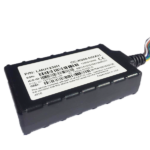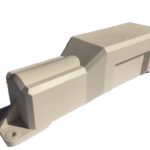Simple Guide To The Different Types Of GPS Trackers
All sorts of devices are being sold as GPS trackers, from dog collars to black boxes wired into trucks. If a keychain pendant the size of a quarter is really using GPS, why are other devices the size of a deck of cards? Why do some need to be wired into cars while others run on batteries for months? Let’s look at the different kinds of GPS trackers available and what really is (and isn’t) using the global positioning system.
GPS Tracking Basics
GPS uses a network of satellites orbiting the Earth to figure position. Basically, each of these satellites broadcasts a signal. Special receivers use the signals they receive to triangulate their position relative to the satellites. If a device finds position using the satellite network, it is a GPS device. If it uses some other way, such as triangulating its position against cellular towers, it is not a GPS device.
Many people use GPS as a generic term for anything that figures position, though, and this leads to some confusion. Some people are also confused because GPS can be used for many different things. It is commonly used to figure directions (this is called GPS navigation). GPS tracking is when the device shares its location with outside monitors. (Learn more about the difference between GPS navigation and tracking here.) GPS is even used by computer networks to establish a common clock among many different devices. No matter how the information is used, if a device gets its data from the satellite network it is a GPS device; if it doesn’t then it is not GPS.
Personal Or Wearable GPS Trackers
Many GPS trackers are quite small. One category of GPS trackers is wearables, which are devices meant to be worn. Some trackers are as small as a wrist watch. These can be used by hikers and hunters to share their location in case of an emergency. Some even have a button that can broadcast a request for help along with their position, usually via the cellular networks. Other units are a little larger, like a cell phone, so they are not wearable. However, they include a screen so they may act as both a GPS navigation system and tracker. Many wearables call themselves GPS units, but they are not. Quarter-sized pendants to help you find your keys, for example, usually use a Bluetooth connection.
It is important to know exactly how a tracking device is getting its location information. For example, some pet collars may use GPS and others a Bluetooth connection. If it uses Bluetooth you must be within 800 feet, often less, to receive its tracking information (find the Bluetooth standards here). Other devices use cellular towers to figure their positioning. While this may be an accurate system, it is not GPS!
There are many advantages to non-GPS systems, though. They may allow a wearable to be lightweight, for example. They also are a better technology for tracking small items. GPS trackers report position compared to satellites at a street address level of precision. That is great for a car, but you probably want to know where your keys are in the house, not just that they are somewhere in your house!
GPS Trackers For Vehicles And Equipment
Most GPS trackers are meant for cars and larger pieces of equipment such as boats or trailers. They can still be quite small, often smaller than a cellphone. Many draw power from the car, so they do not need large batteries to operate (although a back up battery is a good idea). There are basically three types available: plug in, hardwired and battery operated. Typically, these units take the information they gather and use a cellular connection to share it. Remote users can then access the GPS tracking data with a cellphone app or via a secure web connection. Learn more in this article: How Do Car Tracking Apps Work?
Plug In GPS Trackers

Plug in GPS trackers literally plug into a port on a car. Since the mid 1990s, all cars in America have been required to include a connection called the OBD II port. This is where mechanics plug their computer to get information from the car’s sensors. The port can also provide power and data to a GPS tracker. Plug in trackers (such as the GoTrackEZ) are small, very easy to install and can tell if a car is turned on or off. This gives them the ability to choose between active and sleep modes (which report data less frequently to avoid draining the car battery). It also allows them to send an alert whenever a vehicle is turned on or off. Plug in models are a good choice for both personal and business users.
Hardwired GPS Trackers

Hardwired devices (like the GoTrack 3-Wire) are wired directly into a vehicle. This may be done because a car doesn’t have an OBD II port. For example, older cars will not have an OBD port and diesel trucks use a different OBD standard which may not be compatible. Hardwired GPS trackers can also be hidden. Because they are not attached to the OBD port, they can be placed anywhere under the dashboard. If installed correctly, though, they still have all of the advantages of the plug in style. In some cases a hardwired unit may offer more flexibility to users than a plug in model. Hardwired GPS trackers are typically used by business owners to track work trucks, but not always. A family wishing to track their diesel truck or hybrid car may find that a hardwired unit is their best option.
Battery Powered Tracking Units

Battery operated GPS trackers (like GoTrack’s TTU-720) are independent of a vehicle’s power system. They will have their own long life battery as a power source. Like any other tracking unit, they broadcast their location to monitors. To save battery life, though, they may not report in as often. Typically, vehicle mounted units report in once a minute when the vehicle is running and once an hour when it is not. Battery powered GPS trackers often report in once every 15 minutes after they sense motion and once every four hours when they are at rest.
These are often used on trailers, such as boat or motorcycle haulers. They can also be installed on cargo boxes, dumpsters or even construction equipment. The batteries are often very powerful and can operate months (or longer) without recharging. They are larger than plug in units and are often designed to be bolted into place.
Find the right vehicle GPS trackers for your needs on the GoTrack Product Page.